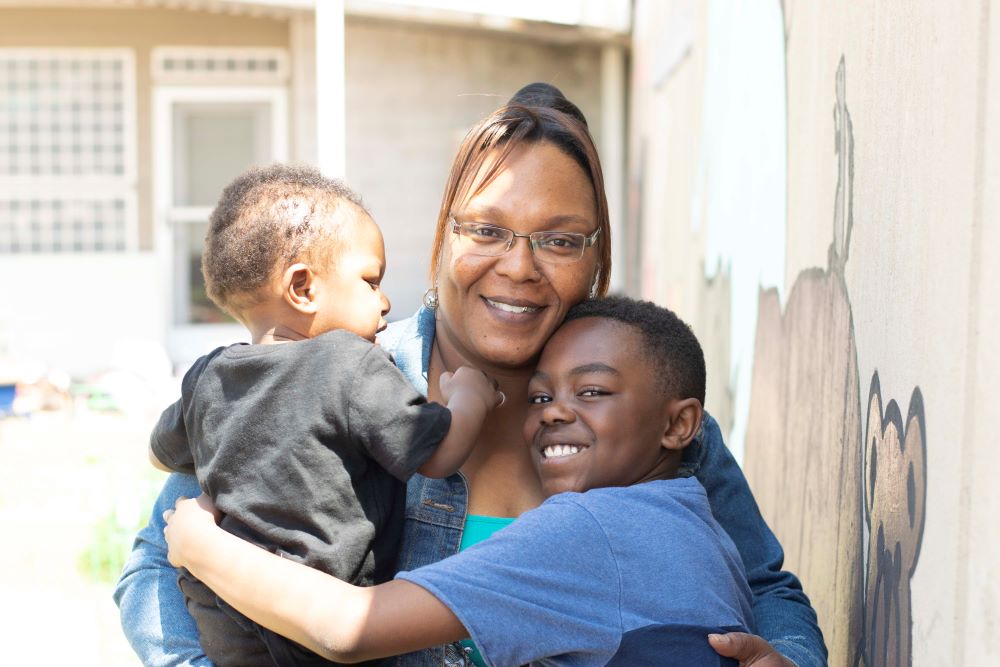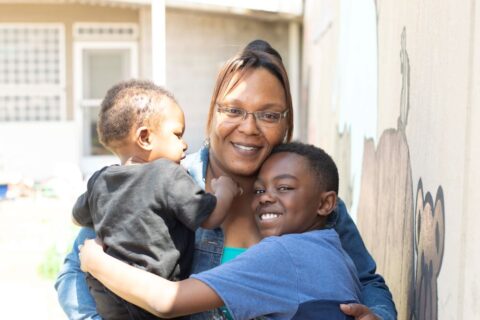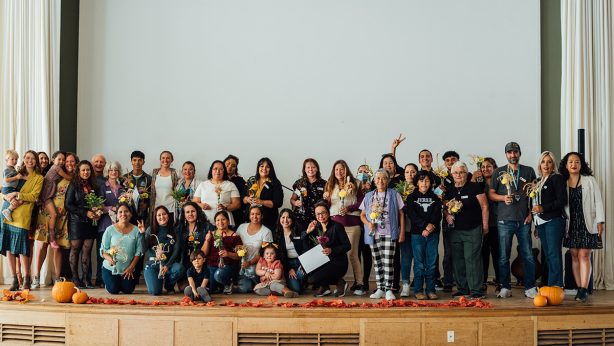
Family Promise of Greater Denver: Helping Families Fight Housing Insecurity
Every year, hundreds of families in Denver experience homelessness. It’s a tough issue to tackle. For one, it’s much less visible than individual homelessness, and often occurs for different reasons, according to Courtney Jensen, Executive Director of Family Promise of Greater Denver.
Family Promise is Urban Land Conservancy’s newest tenant at Mountainview Nonprofit Tower. The organization provides a spectrum of supportive services to help housing-insecure families find stability, from help with finding shelter, to rental assistance, to preventative services to help families from experiencing homelessness at all.

“Family homelessness looks different than what the general public perceives homelessness to look like in our community,” says Jensen. “While there are a lot of individuals suffering on the streets, that’s typically not the story of families. They’re not always going to be in the eye of the community, because they’re usually more hidden, trying to protect their kids. For instance, sometimes that means staying in unsafe situations in order to keep a roof over their heads.”
For Jensen, it’s important that people recognize that many stereotypes around homelessness are even less true for families experiencing housing insecurity. “Many of the reasons families enter homelessness aren’t the stereotypical reasons of substance use and mental health issues, which can happen.That’s not always the case for our clients. We serve really low income people who have other barriers against them that are not allowing them to get into housing, whether they have an eviction on their record, or they have poor credit, or they are just making minimum wage.These people are just trying to get by and provide a good life for their families, and that’s not enough to live in Denver in the current housing market.”
While all families’ needs are different, and the solution to housing insecurity requires many different interventions, Jensen says there is one overarching issue that contributes to family homelessness more than any other: lack of affordable housing. Denver housing costs are higher than ever, and even housing considered “affordable” by city and state governments and developers are often out of reach to the people that Family Promise serves.
In Denver, most affordable housing is priced to be affordable (one third or less of monthly income) to people earning about 50 to 80% of the area median income, but many of the folks that come to Family Promise make 0 to 30% of the area median income. Housing for extremely low income people is rare in Denver. While there is a voucher system designed to get extremely low income people into housing, the vouchers are often in short supply, and don’t guarantee a housing placement even if a family manages to get one. “There are a lot of barriers to accessing or being paired with any housing subsidy, let alone a permanent voucher,” says Jensen. “It’s like winning the lottery.”
That’s why organizations like Family Promise, who help match housing-insecure families with the right services and navigate the complexities of the subsidy and shelter system, are so important. Their rapid-resolution techniques help families get into shelter as quickly as possible after the loss of housing, stay in a safe place like the faith communities that Family Promise partners with, and be stable and supported after they exit the shelter system back into housing. Family Promise is also one of the only organizations in the Denver area to offer direct transportation assistance to families. But according to Courtney Jensen, the most impactful service that they offer is preventing homelessness in the first place.
“Our intervention and diversion services prevent families from experiencing homelessness, or divert them from the shelter system and get them back into housing quickly,” says Jensen. “It’s the healthiest and most holistic way to support families. It’s also the most impactful intervention we can do for the least amount of money.”
Urban Land Conservancy is thrilled to have Family Promise as the newest addition to Mountainview Nonprofit Tower, and to be able to provide the organization with a centrally-located space for below market rent so that they can continue to focus on providing these crucial services to our community.
To learn more about Family Promise, click here.
If you’re interested in leasing at Mountainview Nonprofit Tower, click here.




